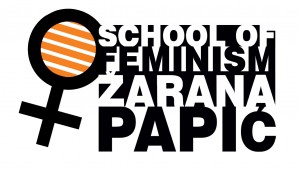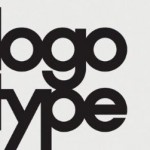Public call for application to the Žarana Papić School of Feminism in 2015
 Sarajevo Open Centre
Sarajevo Open Centre
Public call
for application to the Žarana Papić School of Feminism
in 2015
***
About school
Sarajevo Open Centre, starting from 2015, will continue women’s studies program “Žarana Papić“. This program was launched in 1998 by the Association Žene ženama as a first interdisciplinary study program about women in Bosnia and Herzegovina. Žarana Papić School of Feminism is two-semester academic-activist educational program. Through four theoretical-practical modules and one activist-advocacy seminar, this program will provide feminist education on theories, concepts and practice that are needed for professional public work and activities in local and international governmental and nongovernmental organizations.
Lectures and modules
Lecturers are experts from different scientific fields. School is comprised of four theoretical-practical modules and one activist-advocacy seminar. Module 1: Introduction to feminism: history, concepts, theories will be taught by M.A. in Gender studies Jasmina Čaušević and Aida Spahić. Module 2 – State, law and equality: de jure and de facto will be taught by Graduated jurist and Master of State Management and Humanitarian Affairs Adnan Kadribašić and Doctor of Gender studies Jelena Milinović. Module 3 – Culture and ideology will be taught by Doctor of Gender studies Nebojša Jovanović and Profesor at Faculty of Philology at University of Banja Luka Danijela Majstorović. Module 4 – Feminist ethics and political theory will be taught by M.A. in Philosophy and Assistant at Faculty of Philosophy at University of Sarajevo Tijana Okić and M.A. in Social sciences and Senior Assistant at Faculty of Law at University of Sarajevo Amila Ždralović. Students will be able to listen lecturers who come from Bosnia and Herzegovina and from region within every module. Activist-advocacy seminar – Advocacy and activism, feminist intervention will be lead by Saša Gavrić and Tijana Cvjetićanin who have a lot of experience in advocacy and public work.
Application process
Every adult person who lives in Bosnia and Herzegovina and who is interested in gaining new knowledge and developing critical thinking, that can help them in creating social changes through the advocacy activities, activism or through different science and artistic works, can apply for the school. Everyone is welcome: students of humanities, social sciences, technical sciences, natural sciences or the arts, as well as all those who do not study, who have business careers, who work in private or public sector, or who do not work at all.
We have to point out that School can not bear the costs of transport and accommodation. In order to apply for the school, you need to send a CV and a letter of motivation (in the form of essay length up to 1 page) attached. It is expected from the candidates to have active knowledge of English language, that they are very motivated for School, and that they have active computer skills. Everyone who gets short-listed will be invited to the interview that will take place by the end of March.
Lectures
Lectures will be held in Bosnian/Croatian /Serbian languages. We intend to have 25 students for this program. Lectures within Module 1 and 2 will be held from 10 am to 4 pm on Saturdays, from April to June (11 Saturdays). Lectures within Module 3 and 4 will be held from 10 am to 4 pm on Saturdays, from September to November (10 Saturdays). On special occasions, lectures can be held on Fridays on the afternoon. It is expected from students to participate on 75% of all classes. We also expect from students to do assignments, such as reading texts, writing a final essay within every module, and group also work, that doesn’t need to be in a strictly written form (art work, research, public events). Advocacy-activist seminar will be held by the end of November 2015.
All lectures will take place in Sarajevo Open Centre’s premises – Čekaluša 16, in Sarajevo.
All students of the School who satisfied the norms will get the certificate of participation at the school ending. The most interested participants will be invited to work with the Sarajevo Open Centre and other organizations on advocating for the topics related to the women’s human rights, minorities and marginalized groups in BiH.
Deadline for the application is March the 6th 2015.
For more information about the School, send an email to: [email protected] and [email protected] or call 033/200 073.
More information about Žarana Papić School of Feminism
Context
In the mid-nineties of twentieth century, academic staff and theorists in Bosnia and Herzegovina, with the help of women organizations, are beginning with informal education and courses with feminist agenda. Non-governmental organization Žene ženama launched the project “Women’s studies Žarana Papić” in BiH. This project was conceptualized as two- semester study program with the goal to introduce the attendants with the main ideas of women’s studies. International Forum Bosna, in cooperation with feminists, has opened Centre for gender researches in 2002. Within this Centre, there are many programs, workshops and academic debates. One of the results of these debates was a special edition of Magazine of International Forum Bosna, dedicated to feminism and titled Challenges of feminism (in 2004). Jasminka Babić-Avdispahić, Jasna Bakšić-Muftić, Marina Katnić-Bakaršić and Nirman Moranjak-Bamburać were the editors of this edition. Associates on the both programmes were the professors who have founded the Master’s Program on Gender Studies at the Centre for Interdisciplinary Postgraduate Studies of the University of Sarajevo. This tells a lot about quality of both programs. Until now, there were three generations that graduated on this program. In the academic year of 2013/14, first generation of PhDs has enrolled in this program.
Working methods
Modules will be held in a form of lectures with discussions. Interactive and participatory methodology will be applied during the lectures. Students will be motivated to participate in discussions which will follow the lectures. It is expected from students to prepare and read the essays for the lectures from the Reader that will be made for the module. It is also expected that students are ready to participate in discussions. Format of these discussions will change: sometimes participation in discussion will be individual, sometimes in groups. The subject of essays will be chosen in agreement with lecturer of the module.
Mission
Žarana Papić School of Feminism’s mission is to provide feminist education. This education will encourage people to take responsibility and to act socially through the critically- analytic feminist thinking, responsibility, solidarity and networking. Žarana Papić School of Feminism provides revision and evaluation of dominant knowledge through the interdisciplinary feminist formal, informal and neglected knowledge in order to analyze politic, cultural, social and legal issues, problems and contexts. Žarana Papić School of Feminism acts equally on knowledge production allowing the interaction between science and the different segments of society, as well on encouraging concrete advocacy and activist initiatives in our environment.
Our motto
“Feminist theory has never been separated from the feminism as a social movement. Feminist theory would have no content if there is no feminism as movement, and movement is always included in theory act in all his different ways and forms. Theory is activity that is not limited on academy. Theory happens every time when there is possibility imagined, when there is collective self-reflection, when there is dispute about values, priorities and language.” (Butler, Judith. Raščinjavanje roda. Sarajevo: Šahinpašić, 2005. str. 156)
Team of School of Feminism: Jasmina Čaušević, Dalila Mirović, Maida Zagorac, Saša Gavrić. For more information about the School, send an email to: [email protected] and [email protected] or call 033/200 073.
Žarana Papić School of Feminism is supported by Swedish government through the Swedish agency for international development and cooperation (Sida).
 Competition: Create a logo for Žarana Papić School of Feminism
Competition: Create a logo for Žarana Papić School of Feminism